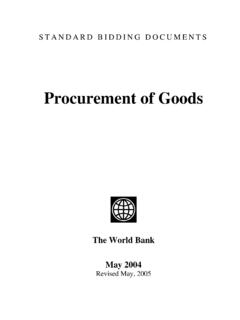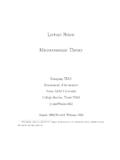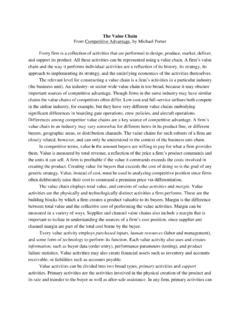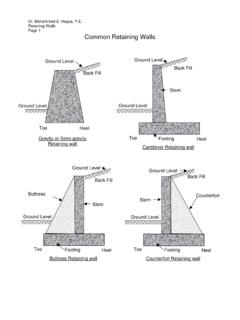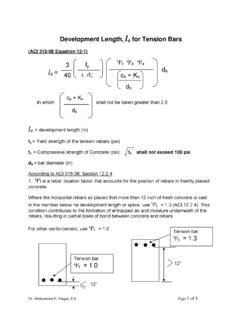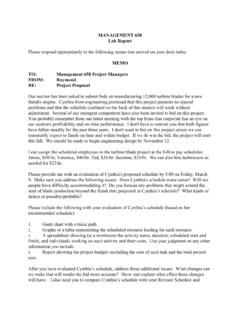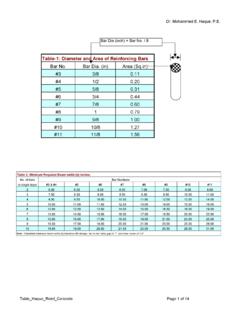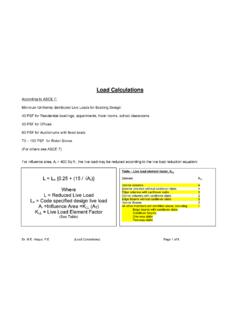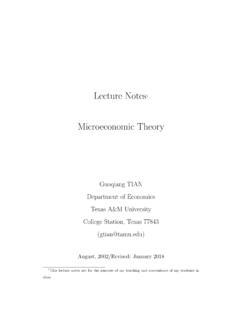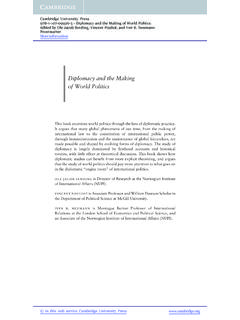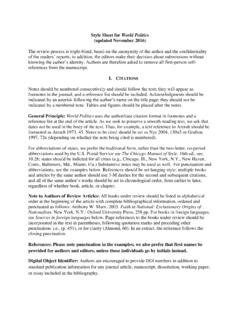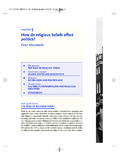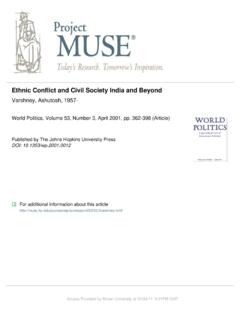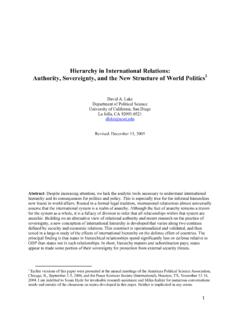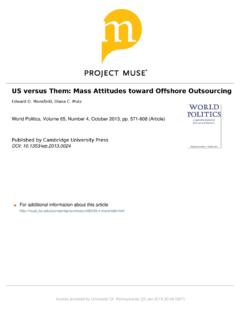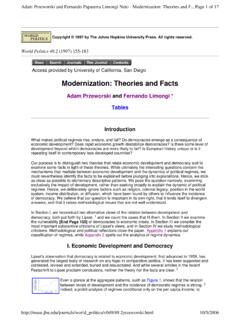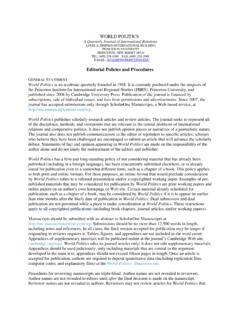Transcription of POLS 231 – Introduction to World Politics, Fall 2016
1 POLS 231 introduction to world politics , fall 2016. Section 501: MWF, 10:55am-11:45am, Allen 1003. Section 504: MWF, 9:45am-10:35am, Allen 1006. Instructor: Timm Betz Office: 2060 Allen Building Office hours: MWF 9:00am-9:45am & by appointment Phone: 734 646 5865. Email: COURSE CONTENT. This class introduces students to the study of World politics . The course will cover questions such as why states engage in war, how international trade and financial policies are shaped by domestic politics , and what role international institutions, such as the International Monetary Fund or the World Trade Organization, play in World politics . The primary focus of the course will be the analysis of how both the international and domestic level help explain events in World politics .
2 The course is segmented into several parts. The first part introduces the subject and a general framework for the analysis of World politics , focusing on strategic interactions among actors. The following parts of the course use this framework to address some of the major issues in World politics : Conflict and security (part two), international political economy (part three), and international cooperation on human rights, migration, and the environment (part four). COURSE OBJECTIVES. After taking this class, students should have acquired and improved the following abilities: to explain and analyze events in World politics ;. to recognize the implications of strategic interactions for observed behavior;. to use evidence to assess claims and theoretical arguments.
3 To present and communicate arguments concisely. COURSE REQUIREMENTS. The class requires the completion of three types of assignments: eight blog posts (each worth of the final class grade); four in-class exercises (each worth 5%); and two exams, a first midterm (30%) and a second midterm (30%). Tentative due dates for each assignment are noted in the overview below in bold font. More details on the assignments are provided below; I will distribute more information on each of these assignments over the course of the semester. Blog posts. You will pick one country at the beginning of the semester. You can pick any country of your choosing, but not your country of citizenship or the United States. You must 1. notify me of your country by email by Wednesday, September 7.
4 I will post prompts for blog posts eight times during the semester. The blog posts will require you to apply the respective topic to your chosen country. The blog posts will be submitted on ecampus. They should be composed and written carefully, but keep them short. The emphasis in these blog posts should be on presenting information clearly, coherently, and concisely, and to correctly apply concepts from class. In addition to writing blog posts, after each blog assignment you should comment on at least one blog post by someone else. Use these blog posts, and the comments on others'. posts, as an opportunity to assess your understanding of the concepts. In-class exercises. At the beginning of the semeter, I will divide the class into groups of four to five students.
5 Throughout the semester, you will work with your group on four in-class assignments. The assignments can be quite difficult at times and are intended to push your understanding of the material, not to quiz you on whether you memorized the material. You are welcome to use any sources to answer the questions, such as from the book, lecture slides, or information you find online. Exams. Both exams will be closed book. The exams will include a combination of multiple choice questions, short questions that you should be able to answer in one or two paragraphs, and one or two longer essay questions. Grades will be awarded based on the following grading scale: A=80-100, B=60-79, C=40- 59,D=20-39, F=19 and below. Given this grading scale, there is no floor in grading if you turn in an empty assignment, or miss an assignment entirely, the score will be 0, not 50%.
6 I am available during office hours to explain grading and comments on assignments (and answer any other questions you may have). If you do not agree with the grade you received on an assignment, the following rules apply: At least 24 hours, but not more than seven days, after you received the grade, re-submit the original assignment and an explanation of not more than 500 words detailing your specific concerns with the grade. After submission, I will re-evaluate the grade and provide you with written feedback. You can contest your grade on any of the assignments, unless the assignment was completed with pencil. ADMINISTRATIVE MATTERS. The class meets three times a week. Most weeks, Monday and Wednesday will be devoted to lectures.
7 The Friday class will be used for exercises and in-class assignments. You should come to class prepared, having read the assigned material in advance. The lectures will reinforce major points from the readings and add additional material. It is your responsiblity to know assigned material that was not covered in class, as well as material that was covered in class but not included in the readings. If you have any questions about the reading, you should feel free to ask these questions at any point in class. Please do not use cell phones in class. You are welcome to use a computer for taking notes. There is no grade for attending class. As such, you do not need to notify me if you have to miss class on days where no graded assignment is due.
8 That being said, I expect you to attend Friday sessions, which occasionally will cover ungraded assignments, and will follow the student rules with regard to absences; see, in particular, Rule 7. If you need to miss class for an excused absence, you should provide me, where possible, with advance notice in 2. writing and obtain my confirmation of receipt in writing (such as an email acknowledgement). If advance notice is not feasible, you must provide me with a notification within two working days after the last day of the absence, which should include an explanation of why advance notice was not feasible. I may require you to provide additional documentation. In that case, you will need to furnish this documentation within one week of the last day of the absence.
9 If you miss class and therefore also miss an assignment for an excused absence, I will provide an opportunity to make up for the missed assignment. If you miss a graded assignment for an unexcused absence, you will receive a score of zero on this assignment. If you know that you will need to miss class at a future date, please notify me as early as possible and plan accordingly. If you miss more than one ungraded assignment for an unexcused absence, I. reserve the right to subtract two percentage points from your final class grade for each missed assignment. For late assignments, I will subtract five per cent of the grade for each day the assignment is late, unless you made arrangements for an excused absence with me beforehand (following the guidelines above on excused absences).
10 Days are counted as calendar days: If an assignment that is due on Monday at 6pm is submitted Tuesday morning, I will subtract ten per cent. In other words, don't work all night if you can't finish your assignment before midnight. Plagiarism is "The appropriation of another person's ideas, processes, results, or words without giving appropriate credit" (Aggie Honor System Office). This applies to entire papers as well as to passages of work, such as sentences or paragraphs. It also applies if you paraphrase somebody else's work without giving appropriate credit. Whenever you use another person's ideas or words, be it in a paper, blog post, or any other assignment, and regardless of whether it is word for word or paraphrased, you must credit and cite the source appropriately.
